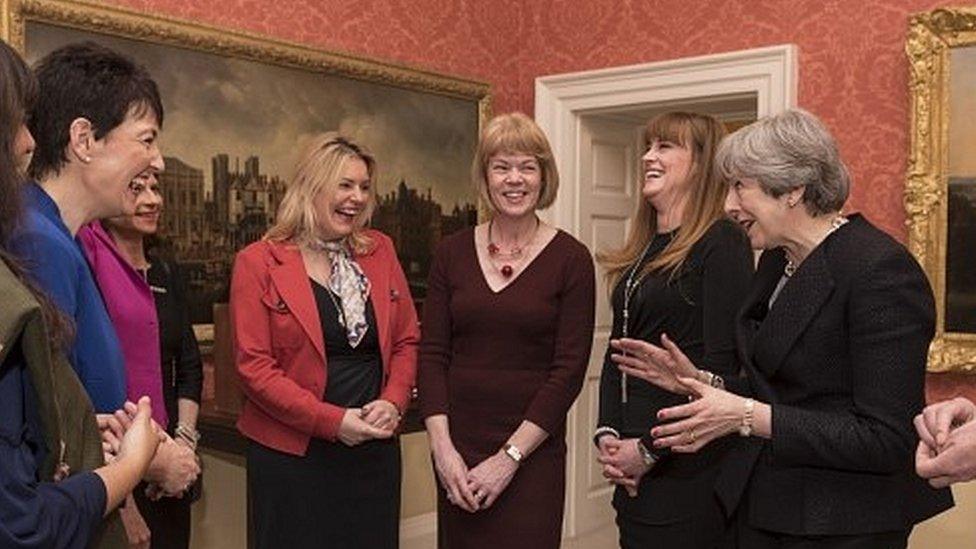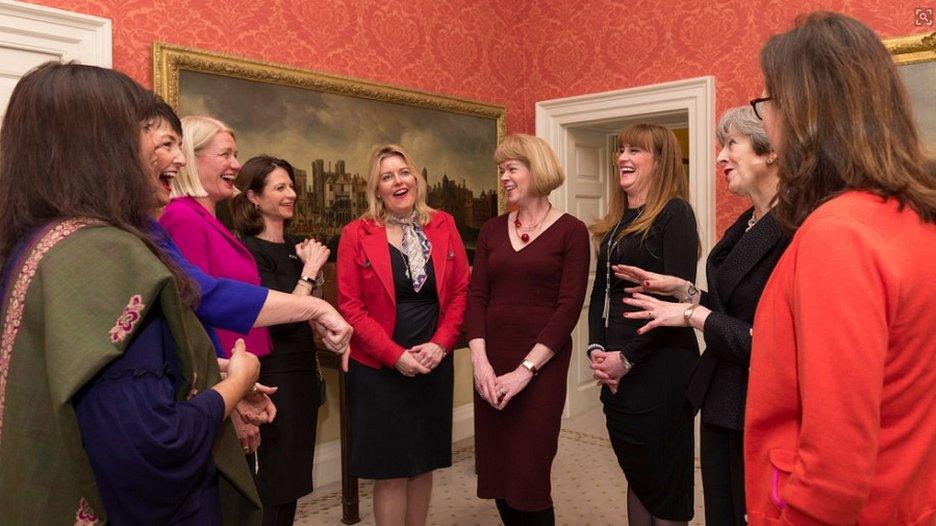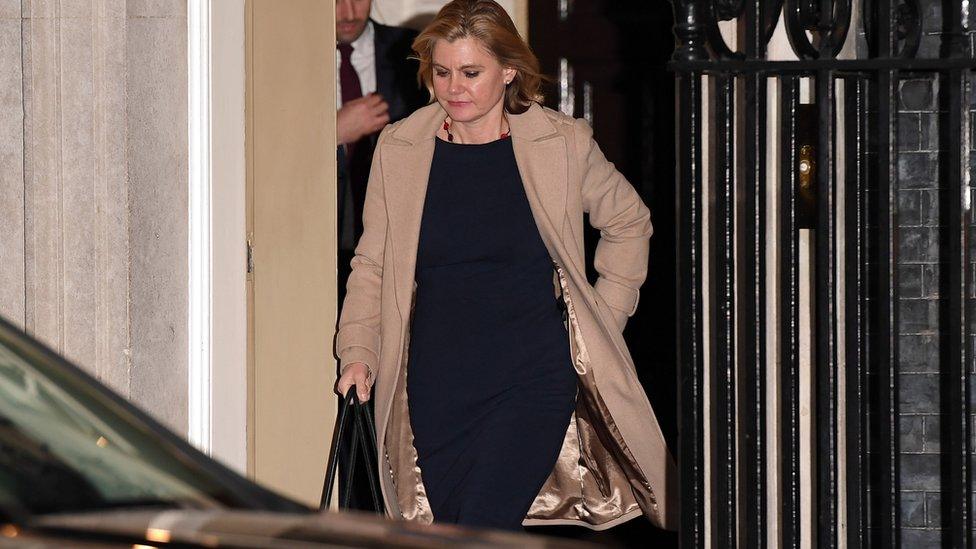The reshuffle: Who really gained?
- Published

Day two arguably went better for the prime minister than day one. She is able to claim, as planned, to have upped the numbers of women in government and new ministers from ethnic minorities.
The talk in Downing Street is of a new "talent pipeline", the jargon for bringing on a new generation to be ready whenever big jobs available next time round.
There has been inevitable concern in some quarters that white, male ministers were moved out to make space irrespective of their performance.
For Number 10 that is a temporary hit worth taking to achieve what the prime minister wants, over time, to develop the next generation in the Tory party and to make the government look more representative of the country.
But there is a lot of muttering among MPs about the overall logic of the reshuffle. Some individual decisions seem puzzling - moving Rory Stewart from International Development, in which he is regarded as a proper expert - to the prisons brief for instance.
Making the up-and-coming Brexiteer lawyer, Dominic Raab, the new Housing Minister, stirring controversy by promoting Esther McVey to secretary of state in a department she already controversially served in, DWP, where she was near the top of the Labour hit list.
There is real anger too among some members of the government at how Justine Greening was treated on Monday night, compared to her male colleagues.
One frustrated minister told me, "Odd that the only minister to have stood their ground who was in the end sacrificed rather than permitted to stay was Greening, funny that".
Yes reshuffles do often go wrong. But what is most notable about this one, and beyond the above, what is causing dismay on the Tory benches is Theresa May's inability to make all the cabinet moves that she wanted to.
One MP joked that the government now looked like "Fawlty Towers - the building is still there but it's chaos and barely functioning". A senior MP told me the reshuffle "it is a not so funny joke".
And while a reshuffle that didn't move the biggest names in government may well not have much impact on the public, the bungled moves have certainly been noticed in Westminster, and with Brexit negotiations getting back up and running, will of course be noticed in Brussels too.
One former minister, not one of Theresa May's usual detractors, was brutal in their verdict tonight saying:
"If she cannot competently reshuffle her Cabinet, how can she competently renegotiate with the EU?…The Cabinet is as divided tonight on the EU as it was before the reshuffle. Who is the biggest winner? Monsieur Barnier, who sees a divided government led by a weak PM. What more could he ask for?"
A strongly negative lens on what's happened in the last couple of days, perhaps, but the misfires of the last couple of days cannot be said to have enhanced the PM's authority. Reshuffles are always a risk, and the fallout this time appears a hindrance to the government rather than a help.
- Published9 January 2018

- Published9 January 2018
